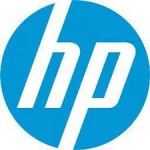 Breaches, breaches, breaches everywhere! 2014 will go down in the history books as the year of the mega data breach.
Breaches, breaches, breaches everywhere! 2014 will go down in the history books as the year of the mega data breach.
Don’t believe me? Take this not-so-fun fact in November the United States Postal Service was breached and more than 2.9 million potential customers were impacted. To put that number in context, in the same year Home Depot had 56 million customers impacted; Michael’s had three million; Neiman Marcus had one million, Target 110 million, and JP Morgan Chase Bank had 76 million breaches.
If you haven’t been hacked in 2014, you are probably not reading this post right now, because you aren’t on the Internet.
In GovLoop’s new guide, 30 Innovations that Mattered in 2014, Bruce Michelson, Distinguished Technologist at HP noted that cyber attacks are increasing at a rate of 20 percent per year.
“You can’t look at the USPS breach as a standalone incident. It is a part of a much bigger picture,” said Michelson. “If you look back on 2014, one of the most telling stats is that half of the American adults have had their personal information exposed. As a citizen, you almost expect to have that happen now.”
In total, USA Today discovered 43 percent of U.S. companies have been breached. 80 percent of the breaches are caused by employee negligence. “At the end of the day, the least common denominator is the employee who might be turning off some of the encryption or some of the security or some of the asset management information, or going to websites that might not have the secure checkmark on it,” noted Bruce Michelson, Distinguished Technologist at HP.
The FBI found 35 percent of the identity theft breaches came from websites. “When you look at the percentages you have to ask yourself whether or not we as consumers are doing everything that we possibly can to protect ourselves. The answer is no,” said Michelson. “No matter how good we think our protection mechanism is, the bad guys attack for a living. It is their job to keep one step ahead of us.”
Because these attacks are so common companies like HP are developing tools like HPSureStart – a product that attacks security breaches before they can compromise your data. “If my Basic Input/Output System (BIOS) system has been compromised, HPSureStart will automatically senses that and resets the BIOS to its last non-compromised state,” said Michelson.
One of the reasons a system like HPSureStart is necessary is because a password can no longer ensure a person’s online security.
“Half of American adults were impacted by breaches and I’m not so sure we can even advise IT,” warned Michelson. “If my identity was stolen and I worked for you, wouldn’t you like to know my identity is stolen? Of course you would. Yet because of personal privacy laws, I’m not sure you can make that kind of request.” But Michelson predicted 2015 would be the year to answer that question.
To find out more about Michelson’s predictions for 2015 and uncover the top 30 innovations, download the guide!






Leave a Reply
You must be logged in to post a comment.